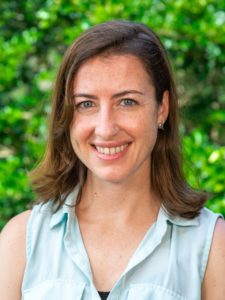The Brown Center invites you to our Faculty Spotlight on Monday, November 8th at 12:00 PM on Zoom. The spotlight series is a showcase of research, creative inquiry, and other scholarly engagement of the campus community. Stop by and learn about the research of our talented Stetson community!

Dr. Corie Charpentier- Assistant Professor of Biology
Department of Biology
The impact of light pollution on coastal zooplankton
Light influences the biology of diverse organisms, by cuing behavior and biological clocks. Due to the introduction of artificial light, however, the nighttime light environment has changed dramatically over the last century. Excluding Antarctica, approximately 22% of the world’s coastlines are exposed to artificial light at night (ALAN), more commonly known as light pollution. Despite this change in coastal ecosystems, few studies assess how ALAN affects coastal animals. Coastal zooplankton are a taxonomically diverse group of “animal drifters”, or animals that cannot swim against horizontal currents. Some zooplankton exhibit strong behavioral responses to light (e.g., larval crabs), while others demonstrate little to no response (e.g., larval oysters). The focus of this research was to (1) evaluate behavioral responses to artificial light sources in coastal zooplankton, and (2) determine whether observed behavioral responses impact zooplankton depth in the field. Preliminary results indicate that crab larvae swim down in response to overhead streetlight stimuli. These responses were less pronounced in larval barnacles and oysters. My senior research students and I are now assessing whether these behavioral responses are apparent in the field, by comparing nighttime depth of zooplankton between field sites with low and high ALAN input. Since depth impacts horizontal transport, variation in zooplankton responses to light pollution could influence coastal biodiversity through changes in dispersal and subsequent settlement of larvae.
Corie Charpentier is a marine biologist, who is interested in the role of environmental change on the behavior, physiology, and ecology of coastal animals. She grew up exploring the rocky shores of New England and discovered her passion for marine science at an early age. Since, she completed a B.S. in Marine Science at Eckerd College, a Ph.D. in Marine Biosciences at the University of Delaware, and a postdoctoral fellowship at Rutgers University. She also taught biology and marine science courses at Ransom Everglades School in Miami before beginning her work as an Assistant Professor of Biology at Stetson.
